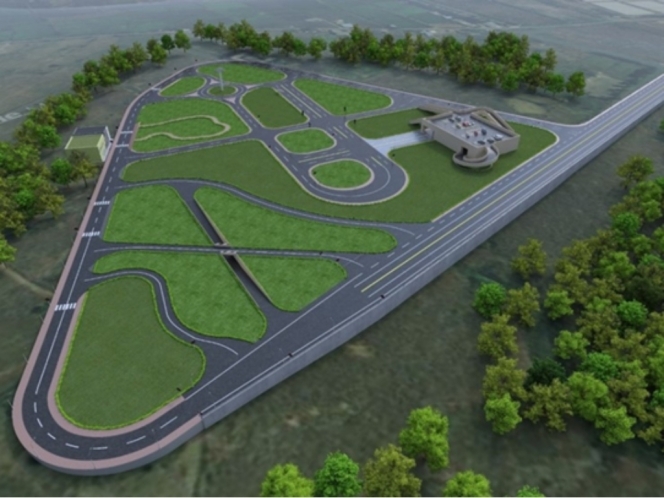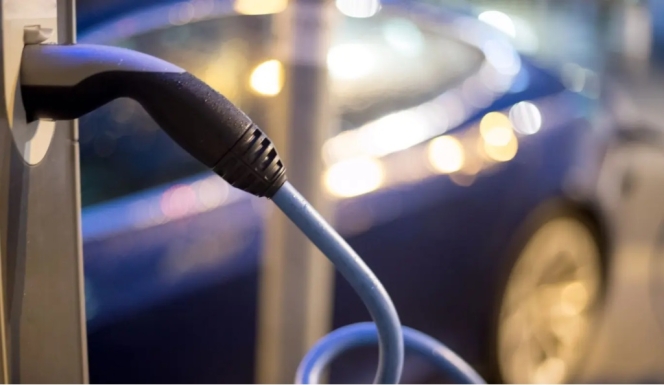- ICEMA
- Indian Construction Equipment Manufacturers Association
- Construction Equipment Manufacturing And Supply Chain Summit
- Construction Equipment
- Bharat Construction Equipment Expo
- BCEE
ICEMA Holds 3rd Construction Equipment Manufacturing And Supply Chain Summit
- By MT Bureau
- February 07, 2025
Under the auspices of the first edition of Bharat Construction Equipment Expo (BCEE) in Greater Noida on 21 January 2025, the Indian Construction Equipment Manufacturers Association (ICEMA), an affiliated organisation of CII, partnered with the Ministry of Heavy Industries (MHI) to organise the 3rd Construction Equipment Manufacturing and Supply Chain Summit. As India works to realise its goal of Viksit Bharat by 2047, the event offered a forum for ideas and debates on how to enable CE manufacturing to propel national prosperity and advancement.
In order to improve the manufacturing capabilities of the CE industry and facilitate its transformation into a global manufacturing powerhouse, the Summit, which was well-attended by representatives of various stakeholders such as government bodies, OEMs, component manufacturers, suppliers, research institutions and end users of construction equipment, featured discussions on important topics, namely ‘Driving Innovation & Indigenisation: Making Indian CE Industry Atmanirbhar & a Global Manufacturing Powerhouse’ and ‘Building Resilience & Competitiveness with the support of a Robust Supply Chain’.
Panellists from OEMs, component manufacturers, and technology solution providers to the CE industry discussed their personal experiences and expectations regarding localisation, technology adoption, innovation and building a resilient CE supply chain during the event's panel discussions. One of the main issues that emerged regarding the bolstering supply chains was the inconsistent quality of components made by small manufacturers.
As part of the BCEE, the ICEMA Manufacturing and Supply Chain Panel established a localisation zone to showcase CE components that the industry has recognised as being indigenised. This feature gave CE suppliers and manufacturers a chance to assess the potential for working with market leaders to produce essential components domestically, therefore bolstering the supply chain for the CE industry.
The esteemed attendees of the Summit's Inaugural Session unveiled the second edition of the Construction Equipment industry catalogue. In order to promote networking and cooperation amongst industry participants, the catalogue compiles data on the goods, services and technologies provided by all types of stakeholders, including OEMs, component manufacturers, suppliers, technology solution providers and financiers.
The ADAS Show Rescheduled To 12th February 2026
- By MT Bureau
- November 03, 2025

The ADAS Show, touted as one of India’s major automotive future mobility events, has been rescheduled to 12 February 2026 from the originally planned 12 December 2025.
The postponement has been due to the prolonged heavy rains in the Pune region, which have hampered the completion of the ADAS TEST CITY infrastructure.
The event will be held at the ADAS TEST CITY within ARAI’s Mobility Research Centre in Takwe, Pune, which is a proving ground designed for the validation of Advanced Driver Assistance Systems (ADAS) and autonomous vehicles. Organisers noted that achieving the required precision for the track surface and infrastructure before December 2025 was not possible despite continuous effort.
The show, organised by Aayera, will feature live ADAS testing demonstrations by ARAI using its instrumentation. The event will also see automakers, Tier-1 suppliers and technology innovators showcase their solutions at India’s first ADAS smart city.
Syed Fareed Ahmed, Director, Aayera, said, “This extended timeline opens doors for expanded collaborations with global ADAS and autonomous technology companies, offering a larger and more robust platform for live track demonstrations, product launches and international partnerships.”
What’s more, Israel-based Foresight Automotive has also confirmed its participation at the event, where it showcases its solutions designed to provide accurate, real-time detection in complex environments for both commercial and passenger vehicles.
It will present its perception capabilities using live camera streams from both visible-light and thermal cameras. The demonstration will focus on generating depth maps and high-density 3D point clouds, which supply detailed spatial information to enhance obstacle detection and segmentation.
The company states its scalable platform is built specifically for India’s diverse conditions, from heavy urban congestion to rural roads and varying weather, supporting current Advanced Driver Assistance Systems (ADAS) needs while enabling future vehicle automation.
Annat Himmel, Vice-President of Research and Development, Foresight, will participate in a panel discussion titled ‘ADAS for the Indian Market – From Premium to Mass Adoption’ on 12 February 2026.
Oren Bar-On, Co-Chief Executive Officer, Foresight Automotive, said: “ADAS Test City provides an important platform to showcase how advanced perception technology can enhance road safety in India. We are excited to demonstrate how our 3D perception solutions not only support today’s ADAS capabilities but also lay the groundwork for the next generation of autonomous vehicles, unlocking safer and smarter mobility for the future. Foresight looks forward to strengthening collaborations with Indian OEMs, Tier-One suppliers, and technology partners to support India’s growing ADAS ecosystem.”
- Toyota Kirloskar Motor
- Global Skill-Up Training
- Skill India Mission
- Technical Intern Training Program
- NSDC
- G Shankara
- Dr. Sharanaprakash Rudrappa Patil
- Sonal Mishra
- Ministry of Skill Development & Entrepreneurship
- MSDE
- Toyota Technical Training Institute
- TTTI
Toyota Kirloskar Motor Sends 100 Skilled Youth to Japan For Training
- By MT Bureau
- November 01, 2025
Toyota Kirloskar Motor, one of the leading passenger vehicle manufacturers, has announced that 100 members of its workforce will travel to Japan to participate in the Global Skill-Up Training (GST) program at Toyota Motor Corporation.
The initiative aligns with the Government of India’s Skill India Mission and the Technical Intern Training Program (TITP), a framework between the Governments of India and Japan for skill development and talent exchange.
The Global Skill-Up Training program in Japan is an 11-month program, combining classroom sessions with on-the-job training. It focuses on Toyota’s core principles, while also preparing trainees with Japanese language, culture and civic responsibility to prepare for global integration.
The automaker, an NSDC-approved Sending Organisation, has facilitated the overseas training of over 1,000 youth to countries including Japan, Jordan, Qatar and Slovakia.
G Shankara, Executive Vice-President, Finance and Administration, Toyota Kirloskar Motor, said, “We at Toyota Kirloskar Motor are deeply committed to nurturing globally competitive talent from India. The Global Skill Up Training Program is more than just a learning opportunity; it is a journey to experience excellence, discipline, innovation, and respect on a global stage. Through this initiative, we aim to empower our youth with world class technical expertise and the values that define Toyota’s culture, while contributing to the Government of India’s Skill India vision. Together, we aspire to make India a global hub for people, solutions, and automobiles, and together we will make that vision a reality.”
Dr. Sharanaprakash Rudrappa Patil, Minister for Skill Development, Government of Karnataka, said, “We are proud to see our youth getting access to this global opportunity with Toyota. This program aligns strongly with our vision to position Karnataka as a hub for advanced skills while empowering rural talent to access world-class career opportunities.”
Sonal Mishra, Additional Secretary, Ministry of Skill Development & Entrepreneurship (MSDE), Government of India, said, “The collaboration between MSDE and Toyota under the TITP framework represents India’s growing role as a trusted global source of highly skilled professionals. This international apprenticeship opportunity will accelerate India’s contribution to global value chains and enable our youth to build future-ready careers.”
Till date, Toyota Kirloskar Motor has trained and empowered over 140,000 youth across India through its multi-tier skilling initiatives, including the Toyota Technical Training Institute (TTTI) model.
Uber for Business Appoints Rituraj Chaturmohta As Senior Country Manager For India & South Asia
- By MT Bureau
- October 28, 2025

Uber for Business, the enterprise division of Uber, has appointed Rituraj Chaturmohta as the Senior Country Manager for India & South Asia.
In his new role, Chaturmohta will lead the division’s growth strategy, focusing on strengthening partnerships with organisations, enhancing enterprise mobility solutions and driving innovation in corporate travel and employee transportation.
Chaturmohta joins Uber with experience in marketplace and platform businesses. He previously served as Head of Sales and Business Development at Airbnb.
Eric Lee, Regional General Manager and Head of Uber for Business - APAC, said, “We are delighted to have Rituraj join our leadership team to drive Uber for Business’ growth and partnerships in India and South Asia. His experience in building and scaling platform businesses, combined with his understanding of the Indian market will be instrumental in strengthening our enterprise offering.”
Rituraj Chaturmohta, Senior Country Manager, Uber for Business, India and South Asia, said, “I am thrilled to join Uber for Business to lead India and South Asia, one of Uber’s most dynamic growth markets. Uber for Business is reimagining how businesses move - with scale, sustainability, and customer centricity at the core. My focus is to deepen Uber’s relationships with our business clients, build tailored mobility solutions that drive measurable ROI, and make Uber for Business a growth partner for every company operating in this region.”
Uber for Business manages travel, meals, and commute programmes for over 200,000 organisations worldwide. In India, the division currently assists over 8,000 organisations with solutions for business travel, daily commutesand employee shift transportation.
- VDA
- Hidegard Muller
- electric vehicle
- charging
- EU
- 2030 Charging Infrastructure Master Plan
- German Association of the Automotive Industry
VDA Appreciates EV Charging Master Plan Draft, Demands Changes
- By MT Bureau
- October 26, 2025

The German Association of the Automotive Industry (VDA) has assessed the draft of the 2030 Charging Infrastructure Master Plan, calling for a coherent, cross-departmental 'Overall Charging Strategy' to accelerate the expansion of charging infrastructure.
Hildegard Muller, President, VDA, said, “In order to further accelerate the expansion of charging infrastructure for vehicles, increase user-friendliness and ensure charging prices, a cross-departmental 'Overall Charging Strategy' is necessary. Against this background, the VDA fundamentally assesses the draft of the 2030 Charging Infrastructure Master Plan as good.”
The VDA supports the draft's proposals to increase e-mobility through streamlined approval procedures, grid expansion, charging prices through transparency and a focus on charging infrastructure for trucks and buses on highways and at depots.
However, the association outlined areas requiring work:
- Multi-Unit Buildings: The VDA demands that the EU Building Directive requirements for charging infrastructure at parking spaces be implemented into law without delay. It stressed that the pooling of charging points across locations, as mentioned in the draft, would weaken EU requirements and must be rejected.
- Commercial Vehicles: While welcoming the commitment to expand the charging network for trucks, the VDA noted that the still inadequate availability of charging points represents an obstacle to the ramp-up of commercial vehicles and buses. It also stated that the draft fails to address the segment of light vehicles, demanding measures to support the development of charging infrastructure in urban areas.
- Power Grids and Taxation: The VDA highlighted that Germany's power grids are not equipped for the energy transition. It called for the expansion to be oriented towards demand and for a uniform, digital process for grid connection applications. Furthermore, the VDA demands that electricity tax, network charges and concession fees be eliminated when energy is fed back into the supply network (vehicle-to-grid) to establish bidirectional charging.
- Charging Prices: The VDA reiterated that charging prices are necessary for the market ramp-up of e-mobility. It called for the electricity tax for e-mobility to be reduced to make charging electricity less expensive, noting that the draft 'falls short of the coalition agreement' on this point.
The VDA also urged the government to advocate for targets in the Alternative Fuels Infrastructure Regulation (AFIR) at the level, stating that the AFIR targets are not to the market ramp-up of e-mobility in Europe.






Comments (0)
ADD COMMENT